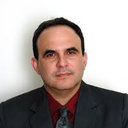On status epilepticus and pins: A systematic content analysis.
Palabras clave
Abstracto
Status epilepticus (SE) can be defined as abnormally prolonged, persistent, or recurrent clinical and/or electrographic epileptic activity and, as such, is a challenging medical emergency requiring an aggressive treatment aimed at promptly terminating the seizures. It imposes a relevant clinical burden, both in terms of comorbidity and mortality. In the era of the Web 2.0, most people search the Web to obtain SE-related information. The current investigation aimed at qualitatively characterizing the pins related to SE: Pinterest, "the world's catalog of ideas", is a visual social networking site that enables users to freely upload visual material, to bookmark, and to share it (repin). Using SE as a keyword, 192 pins were extracted and analyzed on the basis of their content. Fifty-five were found to meet the inclusion criteria. Fifty-six point four percent of the pins reported at least one cause of SE, the most quoted of which being remote brain injuries (47.3% of the pins); 54.5% and 45.5% of the included pins reported SE symptoms and diagnosis, respectively; 72.7% and 40.0% of pins focused on SE treatment and on prognosis, respectively; and 50.9%, 30.9%, and 40.0% of the pins were intended for physicians, medical/nursing students, and lay people, respectively. Only 12.7% of pins were patient-centered and devoted to fund-raising and advocacy. In the field of neurological diseases, Pinterest, despite being a "pinstructive" tool, is too much overlooked and underused for advocacy purposes. Healthcare workers and stakeholders should be aware of the opportunities offered by Pinterest and exploit this visual social networking site for raising awareness of the life-threatening condition of SE, promoting fund-raising campaigns.







